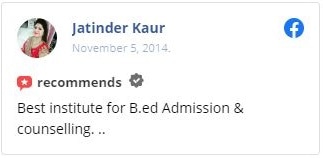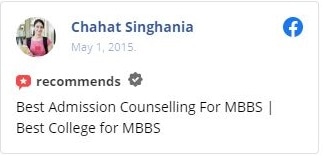B. Pharma (Bachelor of Pharmacy) Admission from Top Best Universities: Admission Process, Eligibility Criteria, Scope, Duration, Fees, Syllabus and Career Opportunities
B. Pharma (Bachelor of Pharmacy) Admission: Overview
The Bachelor of Pharmacy (B. Pharma) program is a comprehensive undergraduate degree designed for individuals aspiring to advance their careers in the pharmaceutical and healthcare sectors. This four-year program provides in-depth knowledge of pharmaceutical sciences, drug development, and patient care
B. Pharma Eligibility Criteria:
To be eligible for admission to the B. Pharma program, candidates typically need to meet the following requirements:
- Educational Qualification: Completion of 10+2 education with a focus on Science subjects—specifically, Physics, Chemistry, and Biology or Mathematics. A minimum aggregate score (usually around 50%) is often required.
- Entrance Exams: Many universities conduct entrance examinations, such as the GPAT or state-level tests, to assess candidates’ knowledge and aptitude for the program.
B. Pharma Admission Process:
- Application Submission: Interested candidates must fill out the application form for their chosen universities, providing necessary details and documents.
- Entrance Examination: Candidates must appear for the required entrance exams, which test their knowledge in relevant subjects.
- Merit List: Based on the exam scores and/or 10+2 marks, universities will publish a merit list of shortlisted candidates.
- Counseling and Interview: Some universities may conduct counseling sessions or interviews to further assess candidates.
- Document Verification: Shortlisted candidates must submit their documents for verification.
- Fee Payment: Finally, candidates need to pay the admission fee to secure their place in the program.
B. Pharma Program Highlights:
- Curriculum: The B. Pharma curriculum covers essential subjects like pharmacology, pharmaceutical chemistry, and bio pharmaceutics, along with practical lab sessions.
- Career Opportunities: Graduates can explore diverse career paths as pharmacists, pharmaceutical researchers, clinical data managers, or regulatory affairs specialists.
B. Pharma (Bachelor of Pharmacy): Eligibility Criteria
To pursue a Bachelor of Pharmacy (B. Pharma) program, candidates must meet specific eligibility criteria. These requirements ensure that students have a solid foundation for advanced studies in pharmacy. Here’s an overview of the typical eligibility criteria:
1. B. Pharma Educational Qualification:
- Candidates must have completed their 10+2 education from a recognized board.
- The curriculum should include Science subjects: Physics, Chemistry, and either Biology or Mathematics.
- A minimum aggregate percentage, usually around 50%, is often required (this may vary by institution).
2. B. Pharma Entrance Exams:
- Many universities and colleges require candidates to appear for an entrance examination. Common entrance tests include:
- GPAT (Graduate Pharmacy Aptitude Test)
- State-level entrance exams
3. Age Limit:
- While there is generally no strict upper age limit, candidates must be at least 17 years old at the time of admission.
4. Domicile Requirements:
- Some institutions may have specific domicile criteria, giving preference to local students. This can involve residency proofs or local certificates.
5. Medical Fitness:
- Certain colleges might require candidates to submit a medical fitness certificate to ensure they are capable of managing the course demands.
In summary, aspiring students must fulfill these eligibility criteria to gain admission to the B. Pharma program, setting the stage for a successful career in the pharmaceutical field. It is advisable for candidates to check specific requirements of the universities they are interested in, as these can vary.
B. Pharma (Bachelor of Pharmacy) Admission Process from Top Universities
The admission process for the Bachelor of Pharmacy (B. Pharma) program varies among universities but generally follows a structured approach. Here’s an overview of the typical steps involved in the admission process:
1. Research and Selection:
- Prospective students should start by researching universities that offer B. Pharma programs. Consider factors like accreditation, faculty, infrastructure, and placement opportunities.
2. Application Form:
- Candidates must fill out the application form for the desired universities. This can often be done online through the university’s official website. Ensure that all personal and educational details are accurately provided.
3. Entrance Exams:
- GPAT (Graduate Pharmacy Aptitude Test)
- State-level pharmacy entrance exams
4. Merit List:
- Based on the performance in the entrance exam and/or the 10+2 qualifying examination, universities will publish a merit list. This list ranks candidates according to their scores.
5. Counseling and Interview:
- Shortlisted candidates may be called for counseling sessions or interviews. This step helps the university assess candidates further and provides an opportunity for them to ask questions about the program.
6. Document Verification:
- Once selected, candidates must submit required documents for verification. This typically includes academic certificates, identity proof, and photographs.
7. Admission Fee Payment:
- Candidates need to pay the admission fee to secure their seat in the program. This fee varies by institution.
8. Commencement of Classes:
- After completing all formalities, students will receive information regarding the start of classes and orientation programs.
B. Pharma (Bachelor of Pharmacy): Syllabus Curriculum
The Bachelor of Pharmacy (B. Pharma) program is typically structured over four years and is divided into eight semesters. Below is a detailed syllabus outline for each semester:
First Year
1st Semester:
- Pharmaceutical Chemistry I
- Pharmaceutics I
- Human Anatomy and Physiology
- Biochemistry
- Communication Skills
2nd Semester:
- Pharmaceutical Chemistry II
- Pharmaceutics II
- Microbiology
- Pathophysiology
- Practical Lab Sessions
Second Year
3rd Semester:
- Pharmacology I
- Pharmaceutical Analysis
- Pharmacognosy
- Community Pharmacy
- Practical Lab Sessions
4th Semester:
- Pharmacology II
- Quality Assurance and Quality Control
- Bio statistics
- Health Education and Community Pharmacy
- Practical Lab Sessions
Third Year
5th Semester:
- Medicinal Chemistry
- Pharmaceutical Biotechnology
- Clinical Pharmacy
- Regulatory Affairs
- Practical Lab Sessions
6th Semester:
- Advanced Pharmaceutical Formulations
- Pharmaceutical Marketing
- Research Methodology
- Project Work
- Internship
Fourth Year
7th Semester:
- Clinical Research
- Pharmacy Practice
- Pharma Covigilance
- Pharmaceutical Management
- Practical Lab Sessions
8th Semester:
- Electives/Specializations
- Comprehensive Exam
- Capstone Project
- Internship/Practical Training
B. Pharma (Bachelor of Pharmacy): Fees and Duration
The Bachelor of Pharmacy (B. Pharma) program is typically a four-year course designed to equip students with essential knowledge and skills in the pharmaceutical field. Understanding the fees and duration is crucial for prospective students.
B. Pharma Duration: The B. Pharma program spans four years, divided into eight semesters. Each semester focuses on various subjects, including pharmaceutical sciences, clinical pharmacy, and pharmacology, along with practical training to provide hands-on experience.
Fees: The fee structure for B. Pharma can vary significantly based on the institution, location, and facilities provided. On average, the annual tuition fees typically range from ₹40,000 to ₹1,50,000. Here’s a breakdown of potential costs:
- Tuition Fees: Generally between ₹30,000 to ₹1,20,000 per year.
- Additional Costs: This may include laboratory fees, library charges, and other miscellaneous expenses, which can range from ₹5,000 to ₹20,000.
- Hostel Fees: For those opting for on-campus accommodation, hostel fees can vary from ₹10,000 to ₹50,000 per year, depending on the type of accommodation.
- Other Expenses: Students should also budget for books, study materials, and personal expenses.
In summary, The B. Pharma program, with a duration of four years and varying fees, offers a comprehensive pathway for students aiming to establish a successful career in pharmacy and healthcare. It’s advisable for candidates to explore specific institutions for detailed fee structures and financial assistance options.
B. Pharma (Bachelor of Pharmacy): Scope and Career Opportunities
The Bachelor of Pharmacy (B. Pharma) program offers a diverse range of career opportunities in the ever-evolving pharmaceutical and healthcare sectors. Graduates are equipped with essential knowledge and skills that prepare them for various roles in these fields.
Scope of B. Pharma:
Pharmaceutical Industry: B. Pharma graduates can work in drug development, manufacturing, and quality control, contributing to the creation of safe and effective medications.
Healthcare Settings: Graduates play a vital role in hospitals and clinics, collaborating with healthcare professionals to ensure proper medication management and patient care.
Research and Development: Opportunities in research institutions and labs allow graduates to engage in clinical trials and drug research, focusing on innovative treatments and therapies.
Regulatory Affairs: Understanding pharmaceutical laws enables graduates to work in compliance and regulatory roles, ensuring that products meet safety standards.
B. Pharma Career Opportunities:
Retail pharmacist: dispensing medications and advising patients on proper usage in community pharmacies.
Clinical pharmacist: involvement in patient care, optimizing medication therapies, and conducting health assessments in hospitals.
Pharmaceutical Sales Representative: Promoting products to healthcare professionals and providing essential information on medications.
Quality Control/Assurance Officer: Ensuring the quality and safety of pharmaceutical products in manufacturing companies.
Research Scientist: Conducting experiments and studies to develop new drugs and treatments in research organizations.
Further Studies: Graduates can pursue specialized courses, such as a Master’s in Pharmacy (M. Pharma) or MBA in Pharmaceutical Management, enhancing their career prospects.
In summary, a B. Pharma degree opens doors to a wide range of rewarding career paths, making it an excellent choice for those interested in contributing to healthcare and pharmaceutical advancements.






























